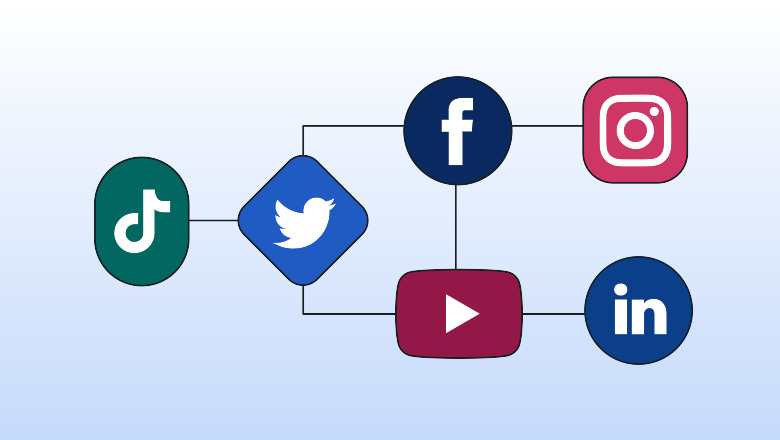In today’s digitally driven world, social media has become an integral part of both personal and professional lives. As businesses strive to build their online presence, leveraging the power of social media offers numerous advantages. This article delves into the profound benefits that social media platforms bring to businesses and individuals alike.
Enhanced Brand Awareness
Social media platforms like Facebook, Instagram, Twitter, and LinkedIn provide an unparalleled opportunity to increase brand visibility. By consistently posting engaging content, businesses can reach a wider audience and foster brand recognition. Visual content, such as images and videos, enhances this effect, making the brand more memorable to users.
Cost-Effective Marketing
Traditional advertising methods can be prohibitively expensive, especially for small businesses. Social media marketing, on the other hand, is highly cost-effective. With the ability to create and share content for free, businesses can also utilize paid advertising options, which offer targeted ads to specific demographics, ensuring that the marketing budget is used efficiently.
Improved Customer Engagement
Engagement is a key metric in the digital marketing world. Social media platforms provide businesses with the tools to interact with their customers in real time. Responding to comments, participating in discussions, and addressing customer inquiries promptly can foster a sense of community and build stronger relationships with the audience.
Increased Website Traffic
Social media serves as a gateway to direct traffic to a business’s website. By sharing links to blog posts, product pages, and other valuable content, businesses can drive significant traffic to their websites. This not only helps in improving search engine rankings but also increases the likelihood of converting visitors into customers.
Access to Customer Insights
One of the most powerful advantages of social media is the access to valuable customer insights. Platforms like Facebook and Instagram offer analytics tools that provide data on audience demographics, interests, and behaviors. This information is crucial for tailoring marketing strategies to meet the specific needs and preferences of the target audience.
Enhanced SEO Rankings
Social media activity can indirectly influence search engine optimization (SEO). When content is shared and engaged with on social media, it generates more inbound links and increases the content’s visibility. This can enhance the website’s SEO rankings, making it easier for potential customers to find the business through organic search.
Lead Generation
Social media platforms are effective tools for generating leads. Through targeted advertising, businesses can attract potential customers who are interested in their products or services. Features like Facebook’s Lead Ads allow users to submit their contact information directly through the platform, simplifying the lead generation process.
Competitive Analysis
Keeping an eye on competitors is essential for staying ahead in the market. Social media provides a platform for monitoring competitors’ activities, from their marketing strategies to customer interactions. This can provide valuable insights and help businesses adjust their strategies to stay competitive.
Building Brand Loyalty
Consistency and authenticity in social media interactions can significantly contribute to building brand loyalty. By providing valuable content, engaging with followers, and showcasing the brand’s personality, businesses can create a loyal customer base that trusts and advocates for their brand.
Customer Support
Social media has revolutionized customer support by providing a direct and immediate communication channel between businesses and customers. Addressing customer queries and resolving issues through social media can enhance customer satisfaction and portray the business as responsive and customer-centric.
Content Distribution
With millions of users actively engaging on social media platforms, they serve as effective channels for content distribution. Whether it’s blog posts, infographics, or videos, social media ensures that content reaches a broader audience. The shareable nature of social media content also allows for organic reach expansion.
Influencer Collaborations
Collaborating with social media influencers can amplify a brand’s reach and credibility. Influencers have established trust with their followers, and their endorsement can significantly impact brand perception. This form of collaboration is especially beneficial for targeting niche markets.
Event Promotion
Promoting events through social media can significantly boost attendance and engagement. Platforms like Facebook and Instagram offer features specifically designed for event promotion, such as event pages and stories. These tools allow businesses to create buzz and attract a larger audience to their events.
Real-Time Feedback
Receiving real-time feedback from customers is another significant advantage of social media. Businesses can gauge customer reactions to new products, services, or campaigns immediately and make necessary adjustments. This helps in maintaining customer satisfaction and improving offerings.
Networking Opportunities
Social media is not just about connecting with customers; it also provides networking opportunities with other businesses, industry leaders, and professionals. LinkedIn, in particular, is a powerful platform for professional networking, enabling businesses to form partnerships and collaborations that can drive growth.
Global Reach
Unlike traditional marketing methods, social media has a global reach, breaking geographical barriers and allowing businesses to connect with a worldwide audience. This is particularly beneficial for businesses looking to expand internationally or tap into new markets.
Personalized Marketing
Social media platforms offer advanced targeting options that allow for personalized marketing. Businesses can create highly targeted ads based on user behavior, interests, and demographics. Personalized marketing increases the relevance of ads, resulting in higher engagement and conversion rates.
User-Generated Content
Encouraging customers to create and share content related to the brand can enhance its credibility and reach. User-generated content (UGC) acts as a form of social proof, showcasing genuine customer experiences and building trust among potential customers.
Crisis Management
In times of crisis, social media serves as an essential communication tool. It allows businesses to address issues promptly, provide updates, and manage public relations effectively. Timely and transparent communication can mitigate negative impacts and preserve the brand’s reputation.
Conclusion
The advantages of social media for businesses are manifold, ranging from enhanced brand awareness and cost-effective marketing to improved customer engagement and access to valuable insights. By strategically leveraging social media platforms, businesses can not only achieve their marketing goals but also build a loyal customer base and maintain a competitive edge in the market.


